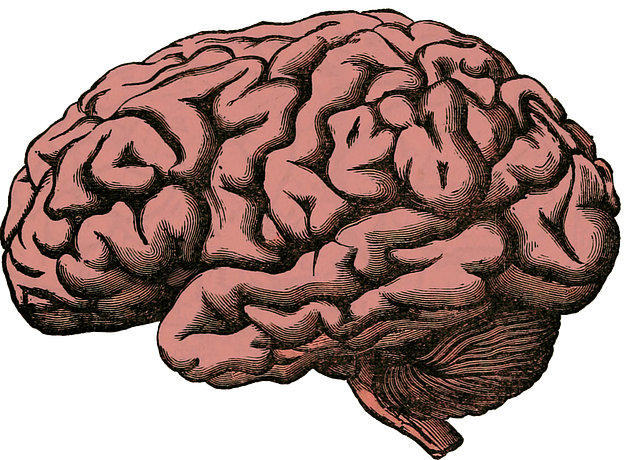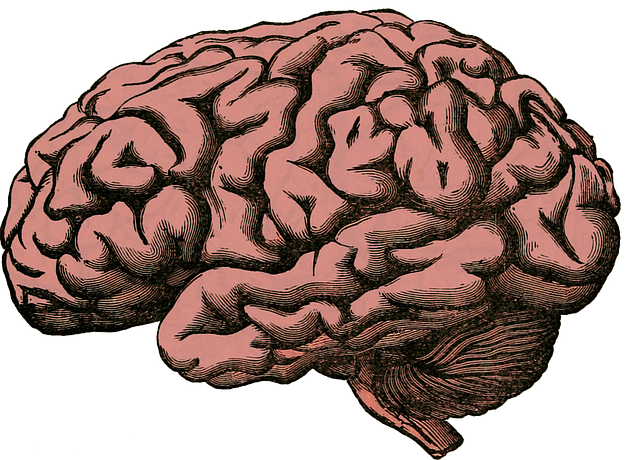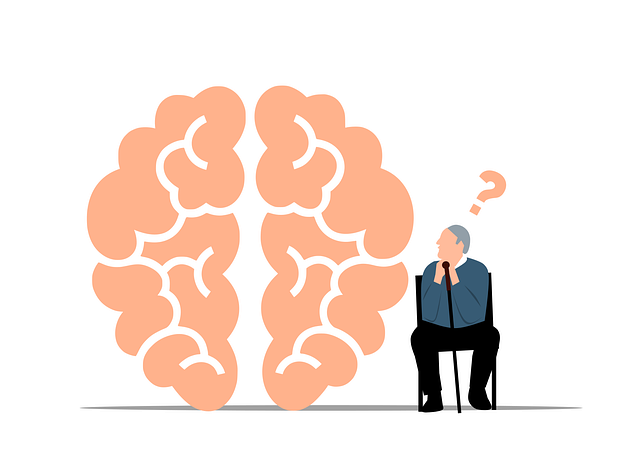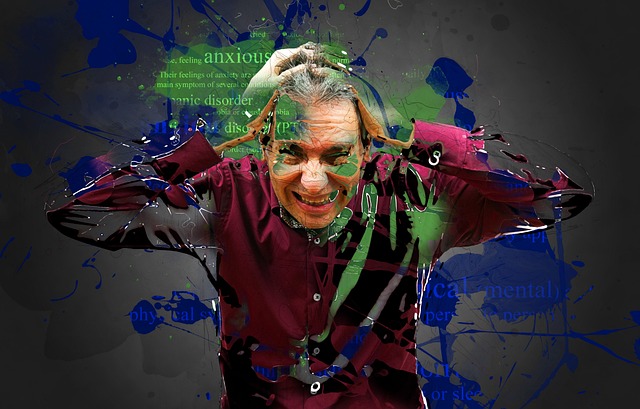Emotional intelligence (EI) is a powerful tool for navigating life's challenges and improving well-being, especially through Louisville Pain Management Therapy. By cultivating self-awareness, mindfulness, empathy, and effective communication, individuals can enhance emotional processing, express feelings effectively, strengthen relationships, make informed decisions, and bounce back from setbacks with greater resilience. This approach is crucial in today's stressful world, empowering people to lead healthier, happier lives both personally and professionally. In the context of Louisville Pain Management Therapy, empathy and culturally sensitive communication are key to enhancing patient care, while mindfulness practices break down stigma surrounding mental health.
“Emotional intelligence (EI) is a powerful tool for personal growth and effective relationships, offering a competitive edge in today’s interconnected world. This article guides you through the multifaceted concept of EI, starting with understanding its core principles. We explore the foundational role of self-awareness in mastering emotions and delve into strategies like enhancing empathy, improving communication, and practicing mindfulness. By integrating these techniques, individuals can improve their Louisville Pain Management Therapy outcomes and foster healthier connections.”
- Understanding Emotional Intelligence: Unlocking Its Power
- The Role of Self-Awareness in Building Emotional Intelligence
- Enhancing Empathy: Connecting with Others Deeply
- Effective Communication Strategies for Better Relationships
- Practicing Mindfulness: Staying Grounded in the Present Moment
Understanding Emotional Intelligence: Unlocking Its Power

Emotional intelligence (EI) is a powerful tool that enables individuals to navigate life’s challenges with grace and resilience. Beyond mere emotional awareness, EI involves managing and understanding one’s emotions, as well as empathizing with others. For many seeking Louisville Pain Management Therapy, developing emotional intelligence can be a game-changer. It helps patients cope with chronic pain by enhancing their ability to process and express feelings, leading to better overall well-being.
By cultivating emotional intelligence through practices like mindfulness meditation and building inner strength, individuals can improve their relationships, make thoughtful decisions, and bounce back from setbacks more effectively. This is particularly relevant in today’s fast-paced world, where stress and anxiety are prevalent. Resilience building through EI equips people with the mental fortitude to face challenges head-on, ensuring a healthier and happier life, both personally and professionally.
The Role of Self-Awareness in Building Emotional Intelligence

Emotional intelligence building begins with cultivating self-awareness, a cornerstone in the world of Louisville Pain Management Therapy. Understanding your emotions and their impact on thoughts and behaviors is crucial. By recognizing triggers and patterns, individuals can develop strategies to manage intense feelings effectively. Self-awareness exercises, such as journaling or mindfulness meditation, help folks gain insight into their emotional responses, fostering a deeper sense of understanding and control.
This heightened awareness plays a pivotal role in resilience building. When faced with challenges or difficult situations, self-aware individuals are better equipped to navigate their emotions, making more thoughtful decisions and maintaining perspective. The mind over matter principles underlying emotional intelligence enable folks to transform stress into strength, leading to improved overall well-being and a more balanced approach to life’s ups and downs.
Enhancing Empathy: Connecting with Others Deeply

Empathy is a cornerstone of emotional intelligence, enabling individuals to understand and share the feelings of others. It’s about diving deeper than surface-level interactions; it’s about truly connecting and recognizing the unique human experience each person brings. In Louisville Pain Management Therapy settings, cultivating empathy can significantly enhance patient care. Therapists who approach their clients with genuine empathy not only build trust but also facilitate more effective emotional healing processes. By actively listening to and validating a patient’s feelings, therapists can create a safe space where individuals feel seen, heard, and understood, which is crucial for managing pain and depression prevention.
Compassion cultivation practices have been shown to strengthen empathy. These practices encourage individuals to reflect on their own experiences of suffering and cultivate a genuine desire to alleviate the suffering of others. When combined with Emotional Healing Processes, this can lead to profound transformations in interpersonal relationships, fostering a more supportive and nurturing environment. Ultimately, enhanced empathy not only benefits patients seeking Louisville Pain Management Therapy but also extends to all aspects of life, encouraging deeper connections and fostering communities that thrive on mutual understanding and support.
Effective Communication Strategies for Better Relationships

Effective communication is a cornerstone of emotional intelligence and plays a pivotal role in fostering strong relationships, especially in Louisville Pain Management Therapy settings. By employing tailored communication strategies, mental health professionals can significantly enhance their interactions with clients. Active listening, for instance, involves giving undivided attention to the speaker, paraphrasing their thoughts, and asking relevant questions to ensure understanding. This simple yet powerful technique creates a safe space for individuals to express their emotions honestly, which is essential for building trust.
In the context of Louisville Pain Management Therapy, culturally sensitive communication becomes crucial. The Community Outreach Program Implementation and Cultural Sensitivity in Mental Healthcare Practice are vital initiatives that can shape how therapists interact with diverse client populations. Recognizing and respecting cultural differences, incorporating preferred languages, and understanding unique perspectives enable therapists to provide more personalized and effective treatment. These strategies not only improve therapy outcomes but also foster a sense of belonging and encourage open dialogue, ultimately contributing to better mental wellness as highlighted in our Mental Wellness Podcast Series Production.
Practicing Mindfulness: Staying Grounded in the Present Moment

Practicing mindfulness is a powerful tool for building emotional intelligence and enhancing overall well-being. It involves cultivating a heightened sense of awareness, focusing on the present moment without judgment. Louisville Pain Management Therapy often incorporates mindfulness techniques to help individuals manage chronic pain and associated emotional distress. By grounding ourselves in the here and now, we can observe our thoughts and emotions without getting swept away by them, fostering better self-regulation.
In today’s fast-paced world, where minds are often clouded by worries about the future or regrets of the past, mindfulness offers a sanctuary. It encourages individuals to acknowledge their feelings and accept them as they are, reducing the impact of stress and anxiety. Additionally, this practice can lead to improved relationships and effective communication, which are essential aspects of mental health. Incorporating mindfulness into daily routines, whether through meditation or simply mindful breathing, can contribute to breaking down barriers related to mental illness stigma reduction efforts, especially in diverse communities where cultural sensitivity in mental healthcare practice is paramount.
Emotional intelligence is a powerful tool that can significantly enhance our personal and professional lives. By understanding and cultivating self-awareness, empathy, effective communication skills, and mindfulness, individuals can navigate relationships with greater ease and depth. Incorporating practices such as mindfulness meditation or Louisville Pain Management Therapy techniques into daily routines can support these emotional growth areas. Remember, building emotional intelligence is a journey—one that offers profound rewards in every aspect of our lives.














